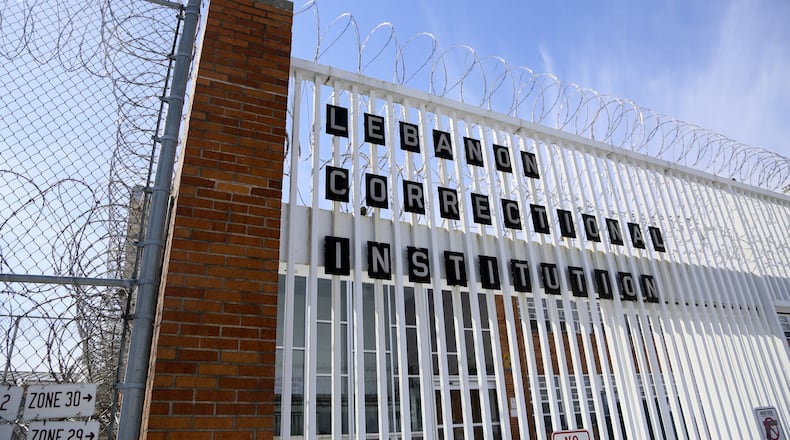“It is close to 10 percent of our total caseload in a year,” Fornshell said. “We would have much less crime if it wasn’t for the prisons.”
Drug cases make up a large portion of those handled by the prosecutor’s office that originate in the prisons. They also include inmate assaults, thefts and assaults using bodily fluids, Fornshell said.
Of the 88 counties in the state, only four — Ross, Pickaway, Richland and Warren — have two prison facilities located in them.
Earlier this month, a WCI corrections officer was arrested on his way to work at an Interstate 75 rest stop with drugs that he allegedly was planning to take into the prison, according to the Ohio State Highway Patrol.
Daniel Garvey is charged with illegal conveyance of drugs, trafficking in drugs and possession of drugs. When arrested, he was in possession of 100 suboxone strips, according to Trooper L. Michael Butler, who is assigned to the patrol’s unit that investigates crimes in the two Warren County state prisons. Butler said Garvey’s arrest is the result of an investigation that began at the beginning of the year.
Garvey’s case will be prosecuted in Butler County because of the location of his arrest, but it is typical of cases referred to Fornshell’s office.
Fornshell said five to 10 percent of the prison population “tests dirty,” so a battle continues to stop the flow of drugs into the institutions through private citizens and employees.
And offenders are “clever” about their smuggling tactics, he said. For instance, inmates will ingest drugs in balloons that are masked as peanut M&Ms. Non-drug M&Ms are sold in the visitation room at the prison, which decreases suspicion.
MORE: Middletown police ‘ambush’ crash suspect still in hospital under guard
“I have been telling them for years to stop selling peanut M&Ms,” Fornshell said, noting he has prosecuted multiple conveyance cases for people who excrete drugs a few days after ingesting a fake candy.
Cases of conveyance of drugs by people into the prison usually have the highest success rate, Fornshell said, because phone conversations are recorded. But inmates talk in code, so interpreting is necessary, he said.
Fornshell said not all drug cases investigated result in charges.
“About 50 percent don’t lead to prosecution, because when investigation starts, things get pretty hot, word travels fast, and the person either leaves or the inmates get word to visitors,” Fornshell said.
Fornshell and his office will continue to handle these prosecutions because of the dual prisons, which is unique in the state.
“When I go to conferences with other prosecutors, they are always amazed at some of the cases the prosecutor’s with prisons in their counties talk about,” Fornshell said. “But for us the prisons are part of the community.”
MORE: Dangerous scams: 10 schemes that hustled the most money from victims
About the Author

